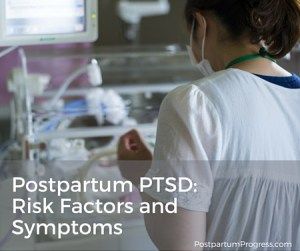Coping with postpartum PTSD: Strategies for healing

Becoming a parent is often described as one of life’s greatest joys. However, not all new parents experience this blissful transition seamlessly. For some individuals, the postpartum period can be marked by a different kind of struggle – postpartum post-traumatic stress disorder (PTSD).
Understanding Postpartum PTSD
Postpartum PTSD is a mental health condition that some individuals develop after experiencing a traumatic birth or witnessing a traumatic event during childbirth. It is important to highlight that postpartum PTSD is different from the commonly discussed postpartum depression.
The Symptoms
The symptoms of postpartum PTSD can be varied and debilitating. They may include vivid flashbacks or nightmares about the traumatic event, intrusive thoughts, intense feelings of fear, anxiety, or panic, hypervigilance, insomnia, avoidance of reminders of the event, and a general sense of detachment or numbness. These symptoms can significantly impact a person’s ability to function and bond with their baby.
Seeking Professional Help
If you suspect that you may be experiencing postpartum PTSD, it is crucial to seek professional help. A healthcare provider, such as a psychologist or psychiatrist, can provide an accurate diagnosis, offer guidance, and suggest appropriate treatment options. Remember, there is no shame in seeking help, and doing so can make a significant difference in your healing journey.
Therapy for Healing
One of the most effective treatments for postpartum PTSD is therapy. Different therapy approaches can be beneficial, such as cognitive-behavioral therapy (CBT) and eye movement desensitization and reprocessing (EMDR). CBT helps individuals identify and challenge negative thoughts and behaviors associated with the traumatic experience. EMDR helps individuals process traumatic memories to reduce their emotional intensity.
Support Groups
In addition to individual therapy, joining a support group specifically tailored for postpartum PTSD can provide a valuable source of understanding and connection. Meeting others who have had similar experiences can offer validation and reassurance. It is comforting to know that you are not alone in your journey, and support groups can provide a safe space to share your feelings and gain insights from others.
Self-Care and Coping Strategies
While therapy and support groups are vital components of healing from postpartum PTSD, there are also several self-care and coping strategies that can be implemented alongside professional help.
1. Prioritize Self-Compassion
Be gentle with yourself and remind yourself that what you are feeling is valid. Practicing self-compassion involves treating yourself with kindness, understanding, and empathy. Give yourself permission to take breaks, rest, and engage in activities that bring you joy.
2. Establish a Supportive Network
Reach out to trusted friends and family members who can provide emotional support. Consider educating them about postpartum PTSD so that they can better understand your experience and offer the support you need. Having a nurturing network can make a significant difference in your healing process.
3. Engage in Relaxation Techniques
Experiment with various relaxation techniques and find what works best for you. Deep breathing exercises, meditation, yoga, or engaging in a hobby that brings you peace are all effective ways to manage anxiety and promote a sense of calmness in your daily life.
4. Physical Exercise
Regular physical exercise has been shown to be beneficial for mental health. Engaging in activities such as walking, jogging, or attending fitness classes not only promote physical well-being but also release endorphins, the body’s natural mood enhancers.
5. Create a Safe Environment
Make your surroundings a safe and comfortable space for your recovery. Surround yourself with positive and soothing elements, such as calming scents, cozy blankets, or soft music. Simplify your daily routines, set boundaries, and create an environment that supports your healing process.
Conclusion
Postpartum PTSD can be an overwhelming challenge, but it is essential to understand that healing is possible. By seeking professional help, joining support groups, and implementing self-care and coping strategies, individuals can find their path to recovery and rediscover the joy of parenthood. Remember, you are not alone, and with the right resources and support, you can overcome postpartum PTSD and find healing.





